VOL 2 ; ISSUE 4 - PUNE RESEARCH SCHOLAR (ISSN 2455-314X) JIF 2.46
2.4
Area of Article : ALL
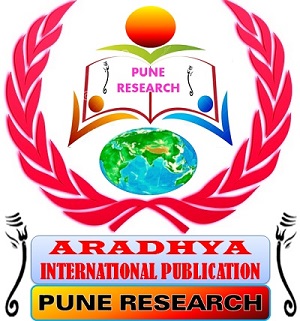
VOL 2 ; ISSUE 4 - PUNE RESEARCH SCHOLAR (ISSN 2455-314X) JIF 2.46
2.4

VOL 2 ; ISSUE 4 - PUNE RESEARCH SCHOLAR (ISSN 2455-314X) JIF 2.46
2.4.1
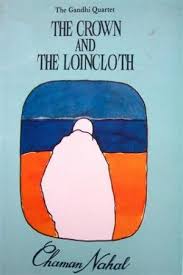
VOL 2 ; ISSUE 4 - PUNE RESEARCH SCHOLAR (ISSN 2455-314X) JIF 2.46
2.4.2
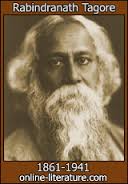
This
paper explores the real theme of Tagore’s works as the spiritual enhancement of
a person irrespective of his religion and age. Tagore borrows themes from
Indian mythology, Buddhism or any other classical sources only to spread the
feeling of humanity among the people of all religions. Moreover, his works
preach that ones salvation is the ultimate goal that is to be achieved by every
human being of any religion. Through his characters he tried to show
symbolically that the true wisdom lies in one’s own spirituality. He used poet’s religion which for him is the
other name of humanity. In fact, he helped his readers to discover their innate
creative spirits and become better religious and better people. In ‘The Post
office’ through Amal’s character he defined religion as a spiritual reality
that will be reached only after death by everyone who has faith in Almighty. He
also vividly explains how Amal’s senses are renewed in a new form that
appreciates all things that surround him. His poems voiced against religious
and social orthodoxy and took on a lyrical voice of establishing communal
harmony among the people. Tagore had reflected on the inner essence of Reality
in many of his poems. His beliefs and human values are well expressed in the
lyrics of Gitanjali. Finally the ultimate theme of his works represents that
true religion is characterized by a healthy relationship with the Divine rather
than by external factors. Tagore believes that finite self (soul) lies in the
root of infinite (God). And it is the finite that grows and develops into the
infinite.
VOL 2 ; ISSUE 4 - PUNE RESEARCH SCHOLAR (ISSN 2455-314X) JIF 2.46
2.4.3
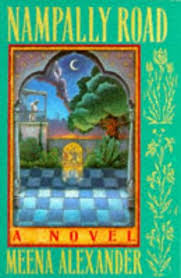
Many Asians, especially the Indians immigrate to Western countries for various reasons. The target country for most of these immigrants is the United States as it provides a base for earning more money or higher studies or for professional development. Hence these immigrants happily settle in the alien land with their big dreams. But there will always be nostalgia about their mother land. This is the major problem found in most of the Diaspora writers. Meena Alexander is such a writer who has produced a few novels and poetry anthologies. Her first novel Nampally Road won her wide acclaim as a writer. The novel set in the 19th Century depicts the pathetic condition of people under the power politics of Indian Government. It also throws light on the emergency period and how people suffered during that time. The protagonist Mira Kannadical, returns from England to settle in her native country India. But she faces many critical situations and tries to adopt herself to the conditions that prevail in her native place. This paper is an attempt to express the struggles undergone by the immigrant in her mother land. It also discusses how the immigrant Mira Kannadical was unable to adapt to the situations that prevail in her native place.
Key Words: Diaspora, Immigrant, Culture, Dislocation, Suffering, Alienation
VOL 2 ; ISSUE 4 - PUNE RESEARCH SCHOLAR (ISSN 2455-314X) JIF 2.46
2.4.4

Since the inception of soft drink in the 1830's, its
consumption has steadily increased with technological advances in production
and increased product availability. Recent statistics from the United States
Department of Agriculture reported a per capita increase in regular soft drink
consumption from 28 gallons per person in 1986 to 51 gallons per person in
2006. In spite of India’s huge population and the fact that around 47% of the
population is composed of persons below 30 years of age, the per-capita
consumption of soft drinks in India remains very low, at approximately at 5.2
liters against the world average of nearly 85.22 liters. Developed countries
such as the US, Germany, Italy and Spain all have per-capita consumption in the
range of 280-400 liters, showcasing the huge potential for market growth in
India. The extreme competitive nature of the mango fruit drink industry, the
slow growing market size and the shrinking margins, a firm that is going to be
successful and generate above average returns must have a sound and coherent
strategy. In order for large scale companies like Pepsi and Coke to protect
their positions, they must be wary of private label infiltration. The biggest
threat in Tirunelveli district is local brand mango fruit drinks. Given the
large amount of Pepsi and Coke that is currently sold mostly in urban area, the
consequences could be huge if the small scale private companies label becomes
accepted and even preferred by the consumer. From a channel perspective, local
mango fruit drinks are dominating the branded mango fruit drinks in fountain
stations. This is a concern that branded mango fruit drinks must address in the
in Tirunelveli district.
Key words: Fruit drinks, consumption, market size, growing market.
VOL 2 ; ISSUE 4 - PUNE RESEARCH SCHOLAR (ISSN 2455-314X) JIF 2.46
2.4.5

Mother Tongue is part of growing up from an infant
into an individual. Learning additional language is known as second language
acquisition. There is a significant relationship between second language
acquisition and mother tongue language. Language is an essential tool for human
growth. Language acquisition is a process which helps people to convey and
exchange their views and thoughts to each other. During this process, we use
certain words belonging to a particular language to understand and communicate.
This process involves learning and using syntax, phonetics, and a wide
vocabulary.
Key Words: Mother, Tongue, English, Language, Influence
VOL 2 ; ISSUE 4 - PUNE RESEARCH SCHOLAR (ISSN 2455-314X) JIF 2.46
2.4.6

The theme of McEwan’s novel Saturday though spacious
and digressive, slowly but certainly grows around waste and trauma. This paper,
aims to focus on the trauma and terror caused by the 9/11 attacks. Such an
accommodating protagonist of the novel- Henry Perowne the novelist gives
accounts paranoid-conspiratorial belief that “airliners look different in the sky
these days, predatory or doomed” (McEwan 15). This paper will also scrutinize
ideological contradiction of the protagonist which proceeds from political and
moral sentimentalism, and how it forms suspicion and ennui, and sees in waste
something more than dangerous, threatening, or even disastrous. After 9/11 many
authors have tried their hand at writing about terror and trauma brought up by
9/11. McEwan is such an author who poses a noteworthy, dramatized analysis of
9/11 impact on the survivors through his novel Saturday. He is the acclaimed
author of ten novels and short stories. This paper explores the large quantity
of themes in McEwan’s Saturday like: trauma, terror and Violence as a way to
express at what 9/11 transported not just to the world in terms of communal,
social, and governmental implications, but what it intended to the victims on
an individual’s level. McEwan’s Saturday is like a crossbred form in which he
syndicates features of 9/11 trauma, dismay and vehemence through the different
characters and their traumatic reactions to war on terror.
Keywords: - McEwan, 9/11 attacks, Trauma, Terror, Violence, Saturday, Trauma Recovery.
VOL 2 ; ISSUE 4 - PUNE RESEARCH SCHOLAR (ISSN 2455-314X) JIF 2.46
2.4.7

This article tries to explore the issue of identity
in postcolonial literature. In the era of globalization, the need for
immigration has increased for various reasons. This in turn results in the dawn
of multi cultural land with cultural diversity. The article focuses on issues
of identity that surges with immigration in a multi ethnical land, particularly
in a colonized world. For the purpose the novels of V.S. Naipaul has been
taken. It tries to analyze the characters from the perspective of rootlessness
and identity crisis. It also examines the methods undertaken by these
characters to construct an identity in the society and thereby break away from
rootlessness.
Key words Alienation, identity, home, rootlessness
VOL 2 ; ISSUE 4 - PUNE RESEARCH SCHOLAR (ISSN 2455-314X) JIF 2.46
2.4.8

Art is not always a representation of the self.
Poetry especially has been defined variously through the ages: Subjective and
Objective, poems have coexisted with each other. The poems of Sylvia Plath are
often associated with the depiction of her personal elements. Though she is
hailed as the proud poet of the confessional mode, her final works are more
social or historical than personal in content. For instance, her reactions to
the Holocaust and the Second World War are well presented in her later poems.
Thus she can be seen traversing beyond the boundaries of Confessional
Literature. This paper attempts to study the social developments and situations
of her contemporaneity impacting her poetic consciousness in the years closer
to her death.
Keywords: Confessional, Taboo Subjects, Social Mode, The Holocaust.
VOL 2 ; ISSUE 4 - PUNE RESEARCH SCHOLAR (ISSN 2455-314X) JIF 2.46
2.4.9
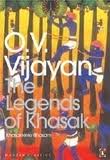
VOL 2 ; ISSUE 4 - PUNE RESEARCH SCHOLAR (ISSN 2455-314X) JIF 2.46
2.4.10

Bearing
in mind all the genres of literature, it is an unquestionable fact that
language provides the edifice for every sphere of life. There are varieties of
English but English literature created by the native speakers or writers has
remained imperative, ingenious, and the established form of English. On the
other hand teaching English literature and literature written in English by
non-indigenous writers also have gained importance and worldwide recognition.
This literature has become an important phenomenon of English in current global
scenario. The writers of literature use language in their own typical way. Thus
every work of literature is the artifact of a specified language and the
artistic and moral value of a work of literature certainly depends on the use
of language. The writer plays with language to produce an effective piece of
literature, for conveying a message that is both evocative and functional to
the audience.
VOL 2 ; ISSUE 4 - PUNE RESEARCH SCHOLAR (ISSN 2455-314X) JIF 2.46
2.4.11

Social networking tools will be the future of communication, a countless
array of Internet based tools and platforms that increase and enhance the
sharing of information. One of the most important advantages of the use of
social networking is the online sharing of knowledge and information among the
different groups of people. Platforms like twitter, Facebook, and Linkedin have
created on line communities where people can share personal information as they
desire with other members. The result is an enormous amount of information that
can be easily shared, searched, promoted, disputed, and created. Social
networking makes possible the transfer of text, photos, audio, video, and
information in general Internet users. Social networking has relevance not only
for students or regular internet users, but businessmen, scientist & all
types of professionals. Social networking is an effective tool to fundamentally
change the professional relations both on an interpersonal and a community level.
Key Words: Social networking, Communication tool, Social networking tools.
VOL 2 ; ISSUE 4 - PUNE RESEARCH SCHOLAR (ISSN 2455-314X) JIF 2.46
2.4.12

Research in the field of exceptional children is taking off at a very slow and insignificant level in India. Virtually it has low priority among professionals. The attempts to implant all western ideas and principles will not pay divided unless indigenous techniques and procedures are developed through research and development of materials.Research is in the areas of developing learning potential assessment device which is common to all areas of disability. Conceptually, it should focus on psycho-educational characteristics of the handicapped, efficacy of delivery systems community based programmes, curriculum modifications, developmental research on instructional system, management of educational environment, research in Piagetian Framework with the disabled, assessment techniques based on cultural specifics are in dire need in our country, with cooperative and partnership endeavour since the field of handicap is a complex area and therefore can rarely be handled at an individual level.
VOL 2 ; ISSUE 4 - PUNE RESEARCH SCHOLAR (ISSN 2455-314X) JIF 2.46
2.4.13

óhoknkph
lq#okr dsOgkiklwu >kyh] gs ikfgys vlrk vls fnlrs dh] ’ksdMks
o"kkZaiklwu óhps vfLrRo iq#"kiz/kku O;oLFksr ukdkjY;k xsys- óhykgh
iq#"kkizek.ks Hkkouk] fopkj Lokra«; vkgs- ;k n`"Vhus fopkj d:u
izLFkkfir lekt O;oLFksP;k fo#) lkeF;kZuh’kh óhus okx.;kl lq#okr dsyh- vFkkZr gh
l#okr óheqDrhP;k pGoGhrwu >kyh- vls vlys rjh yksdlaL—rhe/;s fó;kaP;k Hkkouk]
fopkj] vknj ;kauk tiysys fnlrs- ;kph izfprh dkgh ozrdFkkaP;k ek/;ekrwu ;srs-
vktgh fó;k ozrijaijsps ikyu djrkr- fdacgquk fó;kaP;k thoukr ozrkauk o
ozrdFkkauk ,d egÙokps LFkku vkgs- óhthoukpk vfoHkkT; Hkkx cuysY;k ozrdFkkae/;s
fóoknkps iSyw vk<Grkr dk\ ;kpk ‘kks/k ?ks.ks izLrqr ‘kks/kfuca/kkpk mÌs’k
vkgs-
VOL 2 ; ISSUE 4 - PUNE RESEARCH SCHOLAR (ISSN 2455-314X) JIF 2.46
2.4.14

euq"; vius thou esa iw.kZrk izkIr djus ds fy, lnSo
iz;kl djrk jgrk gSA ijarq thou dh rFkk ;qxhu lekt dh folaxfr;k¡ lkeus mifLFkr
gks tkrh gaSA bu ifjfLFkfr;ksa dh rh[kh vfHkO;fDr gh O;aX; dgykrh gSA lk/kkj.k
cksypky esa O;aX; ^rkuk* Hkh dgykrk gSA vaxzsth esa O;aX; dks lVk;j (satire) uke
ls iz;ksx esa yk;k tkrk gSA lkfgR; esa O;aX; vfHkO;fDr dyk dks gh odzksfDr dgk
tkrk gSA lkfgfR;d vk/kkj ij O;aX; ds dbZ vFkZ fn, tkrs gSA laLd`r ds vkpk;ksZa
us O;aX; dk vFkZ fn;k gSa&^^fo milxZ iwoZd vtz /kkrq gS] O;r~ izR;; ds ;ksx
ls mRiUUk gqvk ’kCn gS] ftlds vusd vFkZ gSa& fofo{kk ds n~okjk funsZ’k]
xq<+ vFkok vizR;{k bafxr ds n~okjk funsZ’k] ladsfrr vFkZ vkSj ’kCn dh rhljh
’kfDr O;atuk n~okjk fufnZ"V vFkZ^^ vFkkZr O;aX; dh vfHkO;fDr izR;{k rFkk vizR;{k O;fDr ds lanHkZ esa rFkk mldh
psru {kerk ij vk/kkfjr gksrh gSA
VOL 2 ; ISSUE 4 - PUNE RESEARCH SCHOLAR (ISSN 2455-314X) JIF 2.46
2.4.15

Hkkjrkrhy mPpf’k{k.k gh tkxfrd lanHkkZr nqljh eksBh
O;oLFkk vkgs- ijarq ,y- ih- th- P;k
eqDr O;kikj{ks=kr f’k{k.kkpk lq/nk O;kikj lq: >kyk- f’k{k.kkps cktkjhdj.k
lq: >kys v’kk ifjfLFkrhr lektkrhy ts oxZ lq:okrhiklwup mis{khr o nqyZf{kr
jkfgys gksrs rs vkrk dksBs rjh mPpf’k{k.k ?ksr vkgs- ijarq uohu izdkjP;k [kktxh
fo|kihBkP;k dk;n;keqGs o ljdkjP;k ukdrZsi.kkeqGs Eg.kk f’k{k.k fg dkfgp
yksdkaph fejklnkjh gksow ikgr vkgs- R;keqGs vkgs js ukgh js e/khy njh vk.k[kh
ok<r tk.kkj vkgs R;keqGs tquhp Lrjhdj.k O;oLFkk uohu :ikr izLFkkfir gksow
ikgr vkgs- R;keqGs dY;k.kdkjh jkT;kph ladYiuk lq/nk ik;nGh rqMfoyh tkr vkgs-
tk.kkj vkgs-
VOL 2 ; ISSUE 4 - PUNE RESEARCH SCHOLAR (ISSN 2455-314X) JIF 2.46
2.4.16
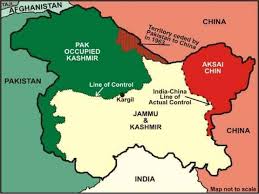
HkkjrkP;k Lokra«;kcjkscj ns’kkph QkG.kh gksÅu Hkkjr vkf.k
ikfdLrku ,desdkaiklwu osxGs >kys- i.k tEeq dkf’ejpk fookn Hkkjrkiq<s
ikfdLrkuus fuekZ.k dsyk- dk’ehj iz’u gk vkt
vR;ar laosnu’khy iz’u vkgs- Hkkjr & ikd laca/kP;k n`”Vhus vfr’k;
dBh.k cuysY;k dk’ehj iz’ukeqGs Hkkjrkyk varxZr iz’ukauk lkeksjs tkos ykxr vkgs-
dk’ehj Hkkjrkpk izns’k vlqugh dkgh QwVhjrkoknh xV /kekZP;k ukok[kkyh osxGk
izkar fuekZ.k dj.;kl iz;Ru’khy vkgsr- g;kaP;k iz;Rukauk ikfdLrkups leFkZu feGr
vkgs- ikfdLrku xsY;k iUuklP;k n’kdkiklqu vkrki;Zr dk’ehjoj vkiyk nkok dsyk
vkgs- 1947 e/;s 370O;k dyekuqlkj tEew dk’ehjyk fo’ks”k jkT;kpk ntkZ ns.;kr
vkyk- fo’ks”k ntkZ feGwugh ns[khy tEew & dk’ehjpk iz’u lwVyk ukgh-
ikfdLrkudMwu gks.kkjs vkØe.k o ng’kroknh la?kVukauk ‘kL=kph vkf.k vkfFkZd enr
ng’knok|kuk izf’k{k.k ;klkj[;k dkjok;keqGs dk’ekje/;s ‘kkarrk izLFkkfir >kyh-
;keqGs gtkjks dk’ehje/khy yksdkapk cGh ?ksryk vkgs- vktgh yksdkar/;s fHkrhps
okrkoj.k vkgs- Hkkjrkus dk’ehjckcr vusdnk jk”Vªla?kkdMs rØkj d:u ikfdLrkuP;k
d`rhyk ik;can clysyk ukgh- iafMr usg:P;k dkGkiklqu rks vkti;Zr Hkkjrkus pkaxys
laca/k Bso.;kpk lrr iz;Ru dsyk- ;q/n udks izLrko ikfdLrkuiq<s Bsoyk] ijarq
ikfdLrkuus izR;sd osGh la/khlk/kw /kksj.k fLodkjys- vesfjdk o ikf’pekR;
jk”VªkP;k leFkZukeqGs ikfdLrkus dk’ehj iz’u xqarkxqarhpk d:u Bsoyk-
vkarjjk”Vªh; la?kVusr ikfdLrku dk’ehj iz’u mifLFkr djhr vlrks- Hkkjr ikfdLrku
;kaP;kr tksi;Zr eS=hps laca/k izLrkfir gks.kkj ukgh- rksi;Zr dk’ehj iz’u
lqV.kkj ukgh- dk’ehj iz’ukfo”k;h jk”Vªla?k cÚ;kpnk vi;’kh Bjr vlY;kus dk’ehj
fookn tSls Fks vkgs-